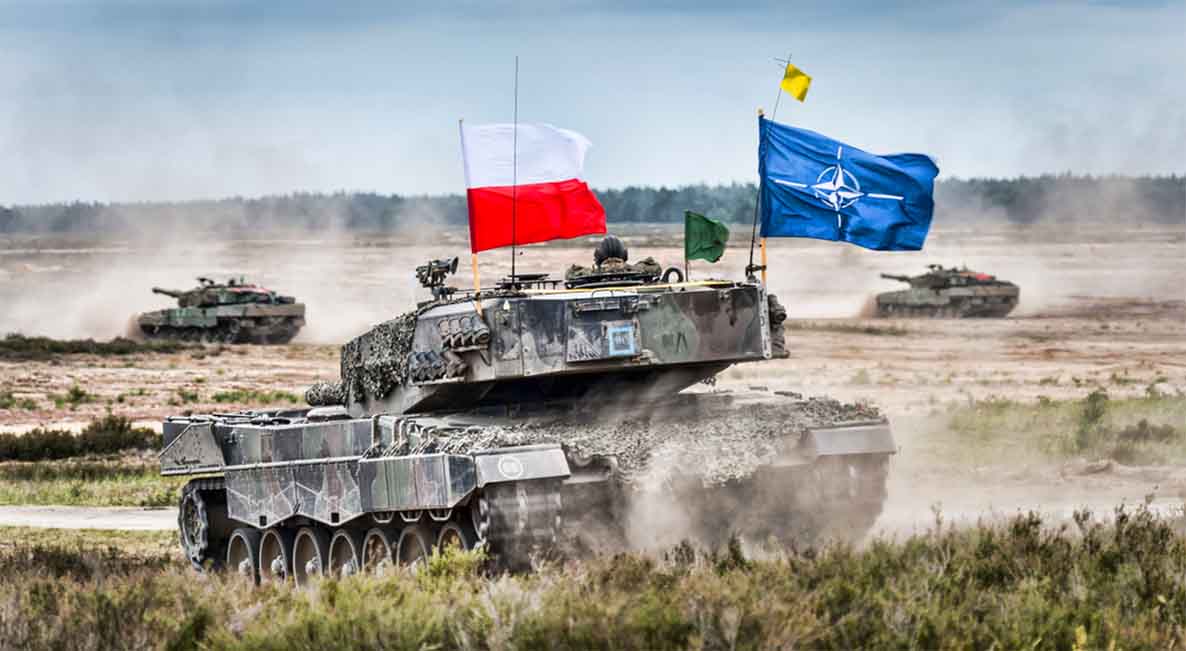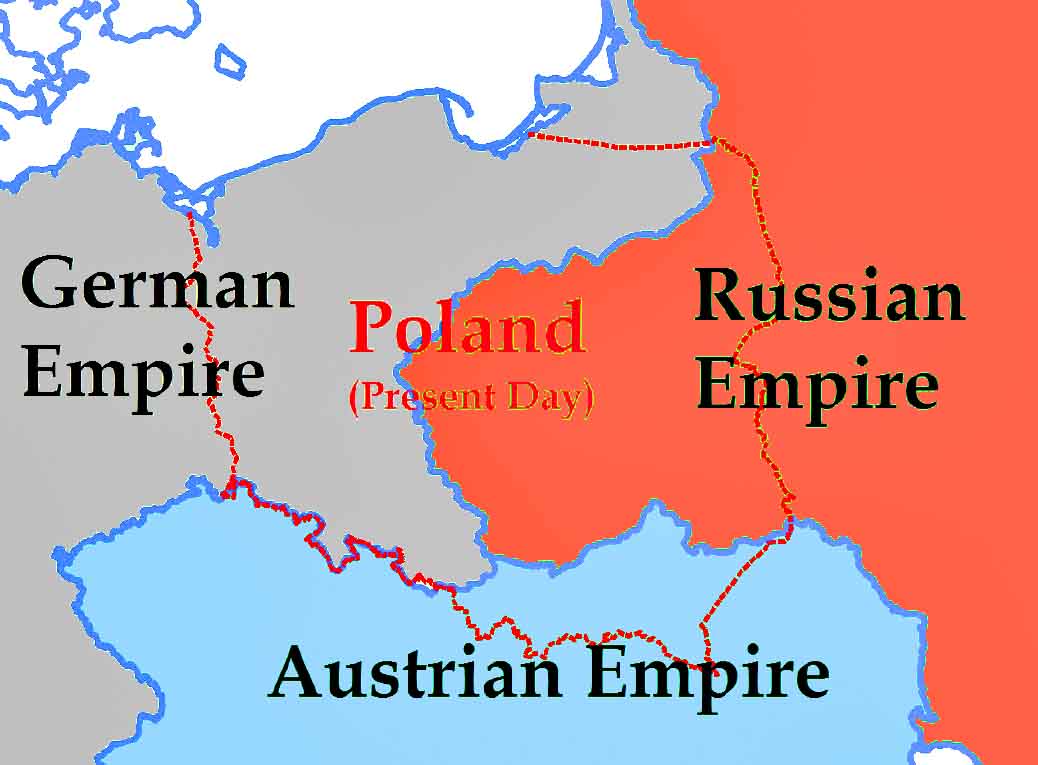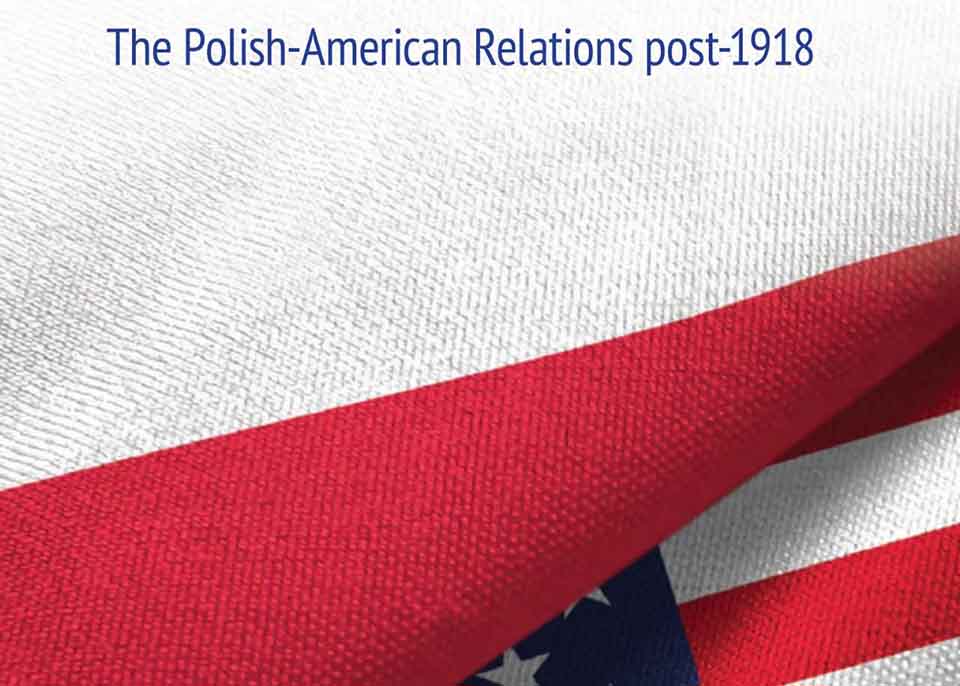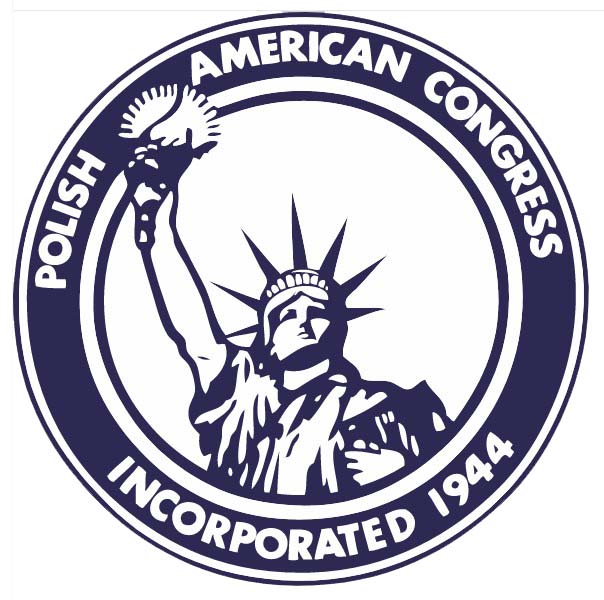June marked the forgotten 80th anniversary of the establishment of the Polish American Congress in Poland. No one in Poland has written about it, so I am fulfilling my patriotic duty. Here is a text about the achievements of the Polish American Congress.
In this article, I use the book by Professor Donald Pienkoś from the University of Wisconsin-Milwaukee, «For Your Freedom Through Ours: Polish American Efforts on Poland's Behalf, 1863–1991», written not only from the perspective of a scholar, but also a witness and animator of events that created the history of the KPA. Despite many activities of KPA activists from Wisconsin, this book has never been published in Polish; it is only available in English.
The Polish American Congress (PAC, Kongres Polonii Amerykańskiej, KPA) was the largest Polish organization in the world. It was founded in June 1944 in Buffalo, New York. Over 2,500 Polish activists and Polish priests from 26 states took part in the founding meeting. The intentions of the congress — to unite all Poles and Americans of Polish descent in order to ensure the existence of a free and independent Polish state after the end of World War II — were not realized, but it can be safely said that it was the largest action to integrate Polonia in the USA. A huge federated organization was created, representing at its best about 10 million Americans of Polish descent.
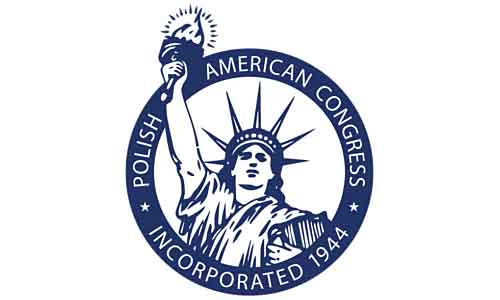
PAC/KPA logo (Source: Polish American Congress)
"The Heroic Era" 1944–1960
This was a period of extraordinary activity of the charismatic Karol Rozmarek, countless journeys together with other KPA activists, and presenting a strong opposition to Soviet domination in Eastern Europe and Poland. The culmination of these activities was the presentation of views at the founding meeting of the UN in San Francisco in 1945 and the conference of foreign ministers in Paris in 1946.
In 1948, the PAC supported lobbying efforts to allow 150,000 Polish war and military refugees to come to the United States and apply for U.S. citizenship outside the then current quota system. The PAC also supported the establishment of Radio Free Europe in 1949 to provide free world news to nations under Soviet domination. The Polish American Congress led the U.S. Congress to authorize an investigation into the Katyn massacre, which concluded in 1952 that Soviet Russia was responsible for the brutal murder.
The Polish American Congress exerted enormous influence on American politics during this period. During the presidential election campaign, both candidates – Vice President Richard Nixon and Senator John F. Kennedy – expressed a strong position against communism, and both, together with the outgoing President Dwight Eisenhower, appealed to the Polish American Congress and Americans of Polish descent for support. In November, Polonia voted for Kennedy by a 4:1 margin, which was an important factor in his victory. The influence on American politics was possible thanks to outstanding figures from both the American and Polish worlds, such as Congressman Klemens Zabłocki from Wisconsin.
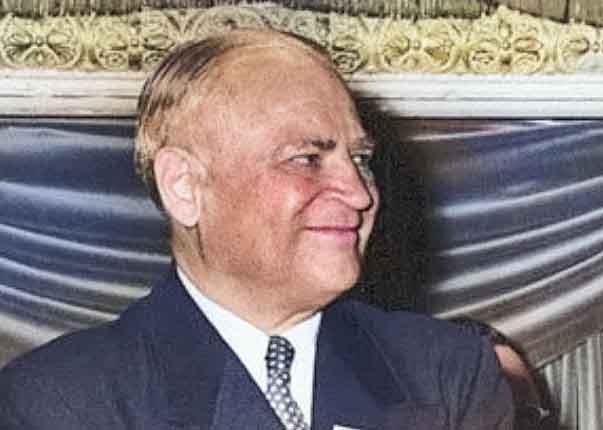
Karol Rozmarek (Source: Instagram, color: A. Woźniewicz)
Karol Rozmarek (1897–1973)
He was a Polish activist, lawyer and publisher. Unfortunately, his achievements were never recognized by the Polish government. The most important quote: "The defense of Poland is today our most sacred and most important duty. It depends on us whether this defense will be just a patriotic phrase or a real defense, one for which the American Polonia will not have to be ashamed in the future."
Era Two — "Anti-Communist" 1960–1980
In the second period of its history, the KPA was faced with gradual changes in U.S. global policy resulting from the Cuban Missile Crisis of 1962 and the massive, protracted war to defend South Vietnam from communist occupation. These events redirected American priorities away from Eastern Europe. Although President Nixon’s détente policy with Moscow in the early 1970s enabled efforts by the Polish regime under Gomułka’s successor, Edward Gierek, to establish purely economic relations with the United States and Polish-Americans, the KPA’s second president, Alojzy Mazewski, a Republican-leaning attorney, staunchly opposed these efforts. As a result, the KPA was criticized for its “obsolete” anti-communism.
After years of lobbying, in 1975 the PAC succeeded in having the United States recognize Poland’s post-war border with Germany. This was part of the Final Act of the Conference on Security and Cooperation in Europe, an international agreement signed by 35 heads of state, including US President Gerald Ford. The document included a provision on the territorial integrity of the signatory states and the inviolability of borders, including Poland’s western border. The agreement also included the principle of respect for human rights and political and religious freedom, including in the countries of communist Europe. The impact of this type of policy was to be enormous – it forced the communists to grant greater rights to dissidents, and above all to members of the significant political opposition in Poland.
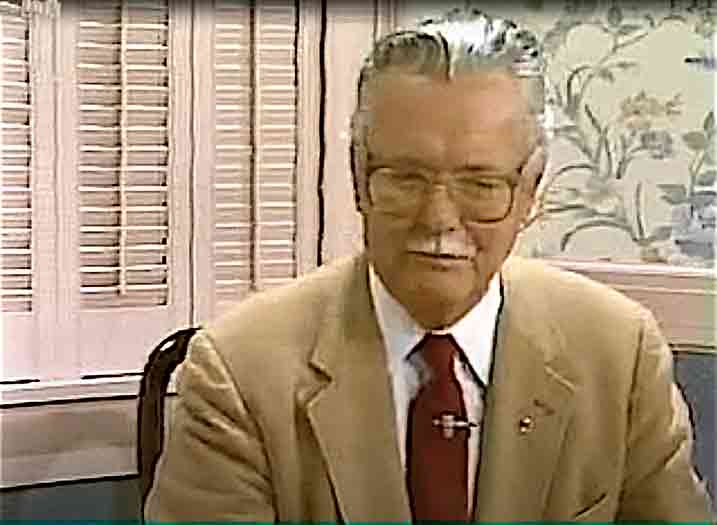
Alojzy A. Mazewski (Source: YouTube/fair use)
Alojzy Antoni Mazewski (1910–1988)
He was a lawyer and a Polish activist. On July 3, 1988, the President of the Republic of Poland in exile, Kazimierz Sabbat, posthumously awarded him the Grand Ribbon of the Order of Polonia Restituta.
The Third Era 1980–1999 — the path to democracy with the US presidents
In the summer of 1980, the deepening economic crisis in Poland led to the creation of the Independent Self-Governing Trade Union Solidarity, whose principles were in line with the teachings of John Paul II. The PAC, in close cooperation with the North American Center for Polish Affairs at the University of Michigan, closely monitored events in Poland and kept the U.S. government informed. The success of the then PAC president, Alojzy Mazewski, in building good relations with successive American presidents, as well as his contacts with President Jimmy Carter's national security advisor, Zbigniew Brzeziński, contributed to the growth of the PAC's importance and its position on the American political scene.
Shortly after the martial law was declared in Poland and Solidarity was banned in December 1981, Mazewski met with President Ronald Reagan at the White House. The PAC strongly supported Reagan’s condemnation of martial law introduced by Gierek’s successor, General Wojciech Jaruzelski. The Congress was also active in humanitarian aid, sending $160 million in food and medical supplies to Poland for the most needy through charitable organizations and foundations, in cooperation with Polish church leaders, by 1990. This figure is comparable to the value of goods sent by Polish organizations in South Africa to Polish refugees, prisoners of war, and armed forces personnel during and after World War II.
Thanks to the courage of the Poles – supported by the Polish Communist Party, the American trade union movement and the Reagan administration – the Jaruzelski regime failed to destroy Solidarity. Under the influence of the Soviet president and reformer Mikhail Gorbachev (1985–1991), in January 1989 General Jaruzelski decided to start a new dialogue with Solidarity. The historic Round Table talks led to the restoration of Solidarity's full legal status and the organisation of parliamentary elections in June of the same year, which brought a complete victory for Solidarity and the rejection by the Poles of the communist regime.
The Polish American Congress supported Solidarity from the very beginning and cooperated with the Reagan administration on the National Endowment for Democracy program, the purpose of which was, among other things, to support the Polish underground opposition. Already in October 1989, the new president of the Polish American Congress, the extremely energetic Edward Moskal, visited Poland to meet with the leaders of the new Solidarity government as head of the Polish American Congress delegation. At that time, he assured the Poles of Polonia's full support for the goals of their new leadership.
The PAC reinforced the Support for Democracy in Eastern Europe (SEED) Act, which provided Poland with $800 million in aid, which included the creation of a $240 million Polish American Enterprise Fund to help restructure the Polish economy in line with free market principles. In 1991, Moskal met with President George H. W. Bush and secured his support for full international recognition of Poland's borders with the newly reunited German state. Since 1993, the PAC has lobbied for Poland's admission to the North Atlantic Treaty Organization (NATO), viewing such membership as essential to Poland's national security and a success in its efforts to build democracy and economic transformation. Significantly, during the PAC's 50th anniversary celebration in Buffalo in November 1994, both President Lech Wałęsa and Polish Prime Minister Waldemar Pawlak thanked congress members for their continued commitment to Poland.
In 1998, after four years of efforts, the United States Senate voted 80-19 to amend the NATO treaty to allow Poland, the Czech Republic, and Hungary to join the alliance, with 21 of 24 senators from the twelve states with the largest populations of Polish Americans voting in favor. In 1999, this goal was achieved, with the number of NATO member states increasing from 16 to 19. Poland's entry into the North Atlantic Treaty Organization is one of the greatest achievements of the PAC. It is also a signal that the congress has completed its mission to support Poland's achievement of full freedom and its integration into the transatlantic community of democratic nations.
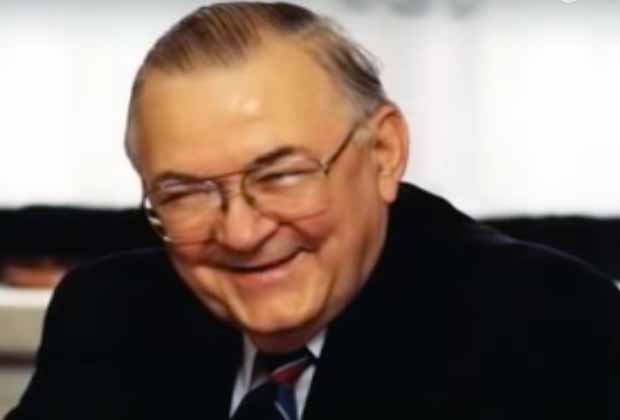
Edward Moskal (Photo: public domain)
Edward J. Moskal (1924–2005)
Entrepreneur of Polish origin, Polonia activist, third president of the Polish American Congress. In 1993, for his outstanding services to Polonia and achievements in the field of Polish-American cooperation, President Lech Wałęsa awarded him the Commander's Cross with Star of the Order of Merit of the Republic of Poland. In 1997, Moskal was named an honorary citizen of Kraków, and in 2003 – of Zamość. He was also honored with an honorary doctorate from the Medical Academy in Poznań. Only in his case, despite the well-known controversies concerning the person of President Moskal, the homeland did not forget about the services of this leader of the congress.
Era Four 1999–Present: Pages to be Written
After 1999, the PAC was faced with the need to redefine its historic mission. Unfortunately, President Moskal did not lead the congress in this direction. Instead, he spoke in debates in which decisions should have been made only by Poles and their elected leaders. For example, he opposed Poland's accession to the European Union, which put him at odds with the views of Pope John Paul II, former President Wałęsa, and the majority of Poles who voted in a referendum in 2003 in favor of EU membership. After Moskal's death in 2005, the task of changing the mission and implementing it fell to his successor, Frank J. Spula.
An important activity of the KPA at that time was the work of the KPA Executive Director Leszek Kuczyński (1947–2008) to obtain compensation for hundreds of thousands of people forced into slave labor by Nazi Germany during World War II. At that time, a sum of $1.6 billion was negotiated, to be paid by German companies that benefited from the forced labor of these people. This led to compensation for over a million victims, including 500,000 Poles. Over $52 million was awarded to Poles living in the United States and Canada. In recognition of his services, in 2002 Kuczyński was elected chairman of the Coordinating Council of World Polonia, of which the KPA was one of the founders in 1978 (the Council was to work for a free Poland).
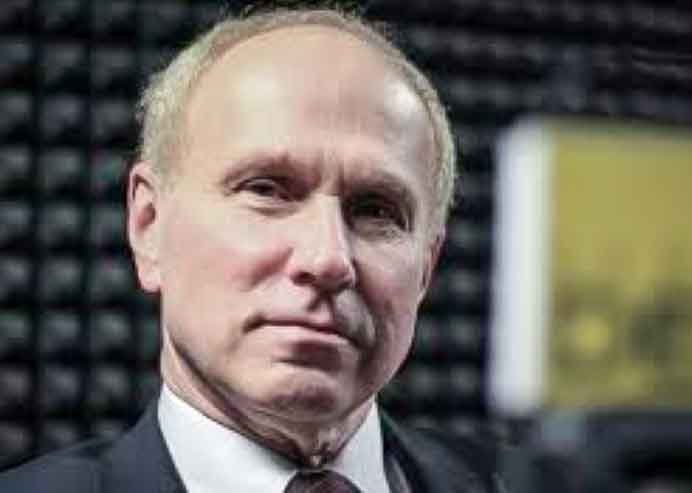
Franciszek Spula (Source: Facebook)
Franciszek Spula
Born in Chicago. He graduated in business from DePaul University in Chicago, then worked in Polish organizations. He serves as president of the Polish National Alliance, the largest Polish fraternal organization in the United States (based in Chicago). Since October 2005, he has also been president of the Polish American Congress. He assumed both positions after Edward Moskal, who died in March 2005. He was elected president of the ZNP during the convention in Philadelphia in June 2005 (for a partial term until 2007). He was awarded the Officer's Cross of the Order of Merit by President Bronisław Komorowski in 2011.
Summary of the Most Important Achievements of the Polish American Congress
- Ensuring the United States' share in financing Radio Free Europe
- Work on creating an emigration program for citizens who could not return to the Soviet-occupied territories after World War II (Displaced Persons Program) to ensure their safe emigration to the United States. Under this program, 150,000 Polish citizens came to the United States
- Ensuring the participation of the United States in the recognition of the Polish borders on the Oder and Neisse by the German state
- Bringing about an investigation in the US Congress into the crime in Katyn and finding the Soviets guilty of this crime
- Recognition of benefits for Polish veterans of World War I and II and equalizing them with the benefits of American veterans
- The United States government's commitment to the National Endowment for Democracy (NED) – aid for the underground Solidarity movement during martial law
- Conducting lobbying campaigns to engage Poland in the Support East European Democracies Act (SEED Act) – a multi-million aid program
- Establishment of the Polish American Enterprise Fund (PAEF) – an aid program for Poland
- Establishment of the Polish American Freedom Foundation (PAFF) – an aid program for Poland
- Assistance in establishing a law for political refugees from Poland during the martial law period
- Support for immigration amnesty for people who came to the U.S. illegally before 1979
- Lobbying campaign to support Poland's efforts to join NATO (9 million signatures collected under the petition)
- Participation in negotiations to grant Polish citizens compensation for forced labor in Nazi Germany
- Material aid of $200 million for medical equipment and assistance to victims of floods in 1997 and 2001
- Lobbying campaign to abolish visas to the USA for Poles.
Behind all these activities are the leaders of individual organizations belonging to the KPA. However, we must not forget about the hundreds, thousands of selfless volunteers who devote their time and money daily to help our homeland. All these people also deserve gratitude and respect.
Translation from Polish by Andrew Wozniewicz.







